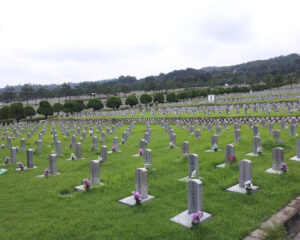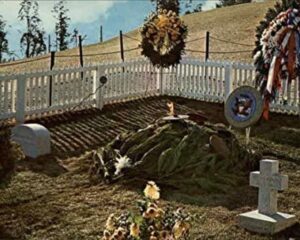Funeral Traditions
Funeral and burial traditions date back to the earliest civilizations. Even in nature, we see animals like elephants and crows exhibit rituals once a member of the herd or flock has died. As cultures and religions evolved, many took on different and unique traditions. Let’s observe some common funeral traditions and some lesser-known burial rituals from around the world.
Christianity
Christian funerals and burials generally involve a eulogy, a viewing, a procession, a mass, and a gravesite visitation. It’s perhaps the most commonly utilized funeral tradition in America due to its simplicity.
Traditional Chinese Culture
Chinese families may consult the Chinese almanac to determine when it’s best to hold the funeral for the deceased. To help the deceased with the transition into the afterlife, families will often place wealth or gifts with the body. In some cases, money is provided as a symbol to bribe the officials who guard the afterlife.
Judaism

In Jewish culture, the body is not left alone prior to the burial. It’s properly washed, purified, blessed, and dressed. The plot is generally in a Jewish cemetery. After the burial, family members and mourners will participate in a process known as shiva, which involves staying at the house of one of the deceased one’s family.
Sky Burials
Sky burials involve placing the bodies of the deceased somewhere high up so that they can be returned to nature through the elements and birds, like vultures. Buddhists in Mongolia and Tibet, as well as practitioners of Zoroastrianism, most often use these sky burials.
Revisitations
In Madagascar, Malagasy people will participate in the “turning of the bones.” They essentially exhume the skeletons of their loved ones and lay them out during a celebration, where members of the family can travel and see one another. In Nigeria, the Igbo culture has large celebrations to better send off the dead. This celebration is known as ikwa ozu and can take place months or years after the death of the loved one.
Cremation

Jason Leung on Unsplash.
Cremation is the act of burning the body to leave behind ashes, which are then either placed in an urn or other vessel to be kept in the home or in a plot, or meant to be scattered at a certain location. Many families choose to scatter their loved one’s ashes at a place that was important to the deceased, such as the sea, a mountain, or another spot in nature. Some cultures and religions prohibit cremation, such as Islam.
21st Century Traditions
As the world has expanded, many believe that they can have a positive environmental impact after they pass away. Green burials are becoming common, which may involve the use of biodegradable urns and coffins, reef burials, space burials, and more.
Cemetery Plots for You
Bayer Cemetery Brokers knows that many plots are attractive locations. If you’re looking for a plot in a religious cemetery, for example, we can help – or if you’d like to sell a plot because other options, like cremation, became more appealing. Give Bayer Cemetery Brokers a call today to discuss a plot you have or that you might be interested in.



